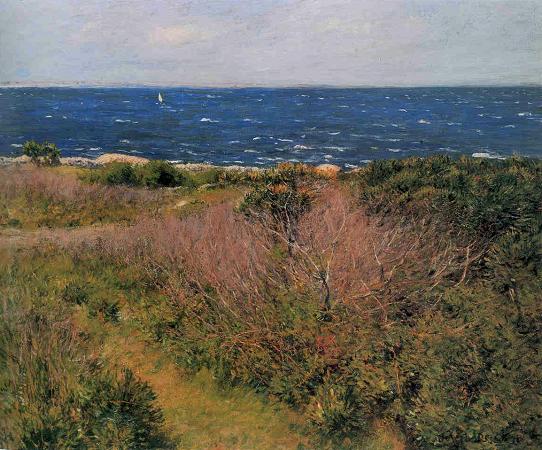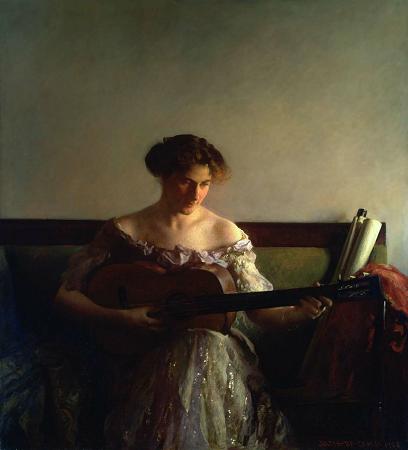Joseph DeCamp (1858 - 1923). Joseph Rodefer DeCamp was an American painter and educator. Born in Cincinnati, Ohio, where he studied with Frank Duveneck. In the second half of the 1870s he went with Duveneck and fellow students to the Royal Academy of Munich. He then spent time in Florence, Italy, returning to Boston in 1883. DeCamp became known as a member of the Boston School led by Edmund C. Tarbell and Emil Otto Grundmann, focusing on figure painting, and in the 1890s adopting the style of Tonalism. He was a founder of the Ten American Painters, a group of American Impressionists, in 1897. Following Thomas Hovenden's sudden death in 1895, DeCamp was hired to teach at the Pennsylvania Academy of the Fine Arts in Philadelphia, Pennsylvania, but resigned after one year because of ill health. From 1903 until his death in 1923, he was a faculty member at Massachusetts Normal Art School, now Massachusetts College of Art and Design, teaching painting from the living model and portraiture. He also taught painting classes at the School of the Museum of Fine Arts in Boston. Among his pupils was Gertrude Nason. In 1891, he married Edith Franklin Baker. They had four children: Sarah Sally, Theodore Ted, Lydia, and Pauline. Family members served as models for a number of his paintings. A 1904 fire in his Boston studio destroyed several hundred of his early paintings, including nearly all of his landscapes. He died in Boca Grande, Florida. He was awarded the 1899 Temple Gold Medal, the 1912 Beck Gold Medal, and the 1920 Lippincott Prize by the Pennsylvania Academy of the Fine Arts. He received an honorable mention at the 1900 Exposition Universelle in Paris. His exhibit at the 1904 St. Louis World's Fair; Reading; The Sea Wall; Portrait of Arthur P. DeCamp; was awarded a gold medal. He was awarded the 1909 Clarke Silver Medal by the Corcoran Gallery of Art. He was awarded the 1915 gold medal by the Philadelphia Art Club. In 1902, he was elected into the National Academy of Design as an Associate Academician.
more...













